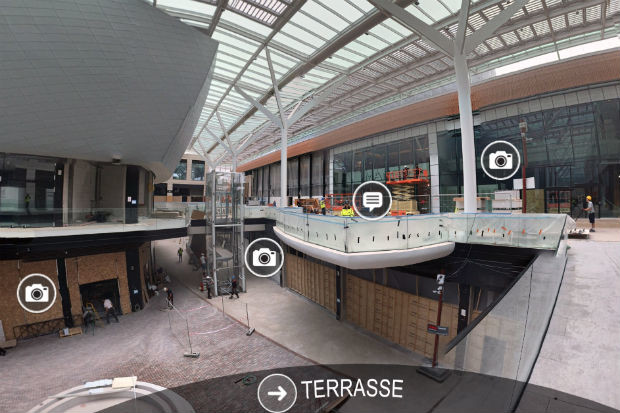About a year ago, a single multimedia team would serve both L’Echo and De Tijd, two sister newspapers covering business news in Belgium – L’Echo in French, and De Tijd in Dutch.
But the team is now split into two, for French and Dutch language, in an effort to connect more with the editorial teams working on each title.
The two teams meet daily at 11am, after their editorial meetings have finished.
There is also a one-hour weekly meeting designed for sharing the next big projects everyone will be working on, as well as discussing how the current ones are performing and how the collaboration between the two teams can improve.
"A bilingual team, with a large variety of digital skills, is a big advantage for a media organisation," Nicolas Becquet, manager of digital platforms at L’Echo, told Journalism.co.uk in a recent podcast.
The two teams collaborate for more complex or ambitious formats, such as data apps or new types of long-form storytelling.
"We’re very flexible, the teams can work alone or in collaboration with journalists on a specific story, helping them with tools, multimedia pieces of news or data analysis methodology, for example.
"We’re working by iterations. We’ve got time and we are free to experiment and try to get even closer to our digital audience habits.”

The skills present in the team range from news app developing, to data journalism, mobile journalism, information architecture and multimedia reporting.
Sharing feedback is a key part of the process. “It's permanent feedback day after day, and during the one hour weekly meeting we're talking about the process to build the formats and the data from the audience," said Becquet.
This data informs decisions on how to improve the formats, and decide which ones are not very effective or which technologies are not advanced enough to provide a good experience at that moment in time. "It's a very stimulating environment."
Having a bilingual team meeting, with conversations combining French and Dutch, enriches the value of the discussions. Each team can share insights from their own audience, as well as information from other resources they follow in their own language or other languages they might be speaking.
The multimedia formats from the two titles include 360-degree interactives, timelines, data visualisations, longform stories and maps.
As well as managing the multimedia team at L'Echo, Becquet is also working to integrate the print workflow closer to the digital platforms one.
"I’ll also continue experimenting with new storytelling formats to reap the full benefits of what the web platforms and mobile devices offer," he explained.
"And today, following the evolution of new digital habits is not optional, it helps us to create the right format for the right audience."
Free daily newsletter
If you like our news and feature articles, you can sign up to receive our free daily (Mon-Fri) email newsletter (mobile friendly).










